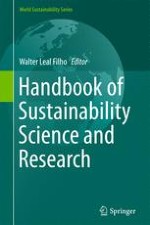2018 | OriginalPaper | Buchkapitel
Sustainable Diets: The Gulf Between Management Strategies and the Nutritional Demand for Fish
verfasst von : Andrew Hollingsworth
Erschienen in: Handbook of Sustainability Science and Research
Aktivieren Sie unsere intelligente Suche, um passende Fachinhalte oder Patente zu finden.
Wählen Sie Textabschnitte aus um mit Künstlicher Intelligenz passenden Patente zu finden. powered by
Markieren Sie Textabschnitte, um KI-gestützt weitere passende Inhalte zu finden. powered by
